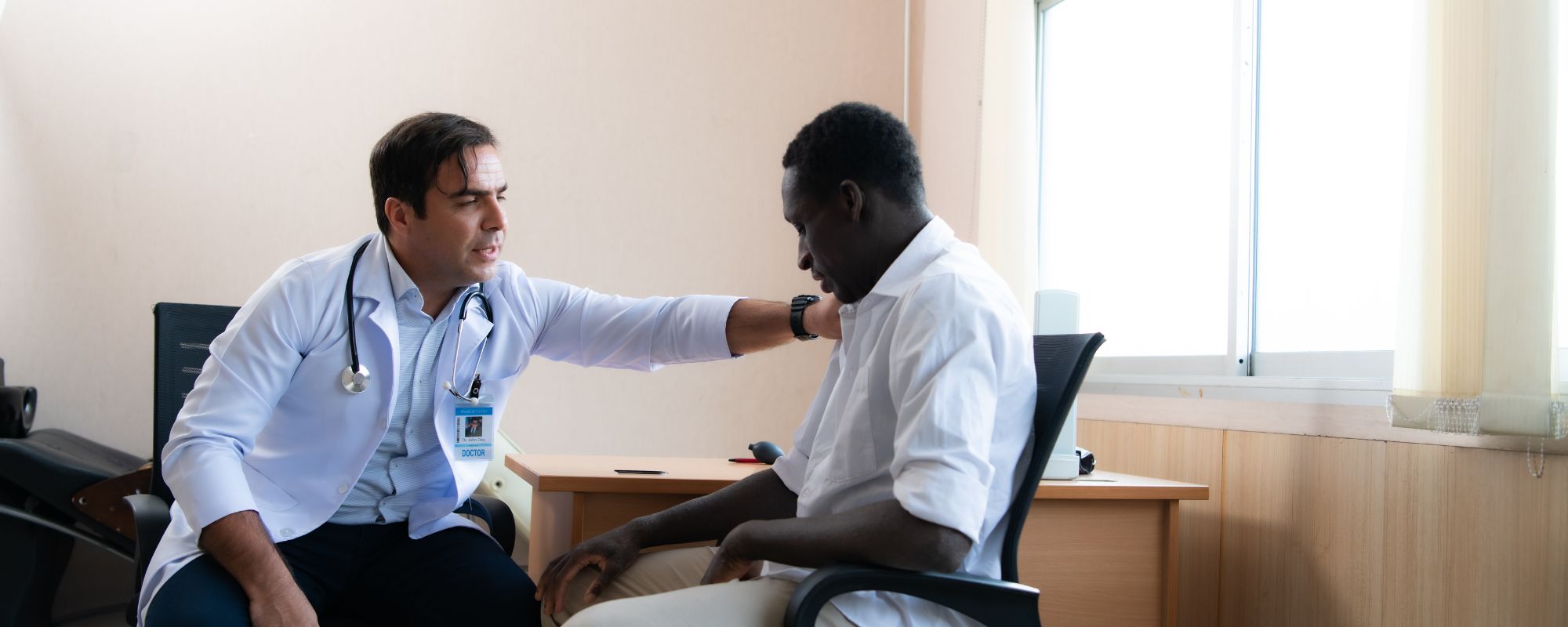Addiction recovery is a complex and often non-linear journey for those working to overcome their substance abuse. When recovering from a substance use disorder, making a relapse prevention plan is crucial for success.
At Chapter 5 Recovery, we work with our clients to build the tools and plan they need to maintain their recovery long after treatment is over. If you are ready to start your journey to sobriety, we are here to help.
What Does It Mean to Relapse?
In terms of addiction, relapse refers to returning to substance use after a period of abstinence. This is a common occurrence in addiction recovery, and it does not necessarily mean someone has failed. Relapse can be a learning experience that helps identify triggers and strengthen recovery plans.
Why Do People Relapse?
There are many reasons why people relapse, and it is important to remember that relapse is a common part of the recovery process. One of the main reasons why people relapse is a lack of support and exposure to triggers.
A solid and healthy support system is important for long-term recovery. Understanding your triggers is also essential so that you can learn how to avoid and deal with them in a healthy manner.
Triggers
There are several triggers that people in recovery tend to experience. Some of the most common include:
- Stress: Stressful situations, like work problems, relationship issues, or financial difficulties, can be a major trigger for relapse.
- Mental health issues: Addiction and mental health issues often go hand-in-hand. If someone is struggling with anxiety, depression, or another mental health disorder, they may be more likely to relapse.
- Cravings: Cravings for the substance are a common symptom of withdrawal, and they can persist for months or even years after someone quits. These cravings can be very intense and can be a major trigger for relapse.
- Triggers: Certain people, places, and things can be triggers for relapse. For example, someone who used to drink heavily at bars may be more likely to relapse if they go back to those same bars after getting sober.
- Poor coping skills: People in recovery need to develop healthy coping skills to deal with stress, cravings, and other triggers. If they do not have these skills in place, they may be more likely to relapse.
- Isolation: Feeling isolated or alone can be a major trigger for relapse. It is important for people in recovery to have a strong support system of friends, family, and therapists.
How Often Do People Relapse?
The relapse rate for addiction is estimated to be between 40% and 60%, according to the National Institute on Drug Abuse (NIDA). This means a significant portion of people undergoing treatment for substance use disorders will experience a relapse at some point.
It is important to understand this is not a sign of failure. In fact, it is expected for most people in recovery to relapse at least once. This should be acknowledged as an opportunity to learn and try again with the knowledge to prevent future relapses.
Who Is at Risk for Relapse?
Several factors can increase a person’s risk of relapse into addiction. Those who are most at risk of relapse include those with severe addictions. This is because they often experience more severe withdrawal symptoms and cravings.
Co-occurring conditions like depression, anxiety, or trauma can also worsen cravings and make it harder to cope with stress in healthy ways. This means that individuals who are struggling with both substance use and mental health disorders have a higher risk of relapse.
Individuals with low self-confidence or a lack of external support may also be more likely to relapse. Building self-efficacy through recovery programs is crucial. Without healthy ways to manage stress, cravings, and negative emotions, people are more likely to turn back to substances.
Reach Out for Help With Addiction
Are you struggling with addiction?
Royal Life Centers at Chapter 5 is here to help you recover. Because we care.
What Is a Relapse Prevention Plan?
A relapse prevention plan is a roadmap for someone in recovery to avoid returning to substance use. It is a personalized strategy that identifies triggers, outlines coping mechanisms, and establishes a strong support system. This can be essential for an individual’s ability to maintain long-term recovery.
Why Is Having a Relapse Plan Important?
A relapse prevention plan is crucial for anyone in addiction recovery because it significantly boosts your chances of staying sober in the long term. It allows you to be prepared for challenges instead of reacting impulsively when cravings or triggers arise.
By having identified coping mechanisms in advance, you have tools readily available to navigate difficult situations without resorting to substance use. Having a plan in place also normalizes the possibility of relapse and provides a clear path forward if it does happen.
A relapse prevention plan is an investment in your long-term recovery. It empowers you with knowledge, self-awareness, and a roadmap to navigate challenges and setbacks effectively. By having a plan in place, you increase your chances of achieving lasting sobriety.
Making a Relapse Prevention Plan
Creating a relapse prevention plan is a crucial step for anyone in addiction recovery. It’s a personalized roadmap that equips you with the tools and strategies to stay sober. Here are some steps you can follow when making your own relapse prevention plan:
Identifying Triggers
Make a list of situations, emotions, people, or places that can lead to cravings or a desire to use substances. Be honest with yourself and include even seemingly insignificant triggers. This can help you avoid and be prepared to deal with these situations in a healthy manner.
Developing Coping Strategies
For each trigger you identified, brainstorm healthy coping mechanisms you can use to manage them. This could include relaxation techniques like deep breathing or meditation, exercise, spending time with supportive people, or engaging in hobbies you enjoy. Consider activities that promote relaxation, enjoyment, and a sense of accomplishment.
Building a Support Network
Identify people in your life who will be there for you during recovery. This could include family members, friends, therapists, or support group members. You may also want to include contact information for each person in your plan so you can easily reach out for help when needed.
Establishing a Routine
Establishing a routine in recovery from addiction is one of the most important things you can do to support your long-term sobriety. It provides stability, predictability, and a sense of accomplishment, all of which can help you resist cravings and triggers.
Make sure your routine incorporates activities that directly support your recovery. This could include therapy sessions, support group meetings, medication reminders, or time for practicing mindfulness techniques.
Setting Goals
Identify your personal goals for recovery. This could involve improved health, stronger relationships, or pursuing hobbies you neglected during addiction. Reflect on what motivates you to stay sober. Identifying these motivators will provide you with a strong foundation to draw on during challenging times.
Can I Prevent a Relapse Before It Happens?
There are many steps you can take to prevent a relapse before it happens. By following a relapse prevention plan and incorporating strategies into your daily life, you can significantly reduce the risk of returning to substance use.
If you sense a relapse coming on and do not feel capable of managing it yourself, there is no shame in reaching out for help. A professional can help you understand your feelings and manage the situation in a safe and supportive environment.
Getting Help Following Relapse
Relapse is a common occurrence in addiction recovery, but it does not have to derail your progress. If you feel overwhelmed or unsure how to move forward, do not hesitate to seek professional help.
A therapist or counselor can provide guidance and support and possibly adjust your treatment plan to address any underlying issues that might have contributed to the relapse. You may also want to consider professional treatment during this time.
Treatment centers like Royal Life Centers at Chapter 5 Recovery can help you understand your triggers and address the contributing factors to your relapse. We can also help you reevaluate and improve your relapse prevention plan.
Case Management at a Treatment Center
Case managers at treatment centers play a vital role in supporting individuals throughout their recovery journey. They act as a central point of contact, advocate, and guide for clients, ensuring they receive the comprehensive care they need.
The case managers at Chapter 5 Recovery will work with you to understand your background, substance use history, medical and mental health needs, and strengths. They will help you develop a personalized treatment plan that addresses all aspects of your recovery.
Aftercare and Relapse Prevention
Aftercare and relapse prevention go hand-in-hand as crucial elements in addiction recovery. Aftercare is the planned support system that follows formal treatment to help individuals maintain sobriety and navigate the challenges of early recovery.
Relapse prevention focuses on identifying triggers, developing coping mechanisms, and building a support network to prevent relapse from happening in the first place. At Chapter 5 Recovery, we help our guests through every step of their recovery journey.
- Roadmap to Long-Term Sobriety: Making a Relapse Prevention Plan - July 24, 2024
- The Dangers of Mixing the Zombie Drugs Fentanyl and Xylazine - May 6, 2024
- The 12 Steps of NA Explained and How to Complete Them - April 22, 2024












